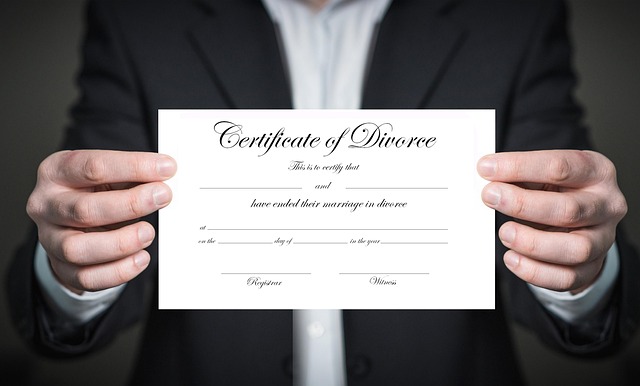Oregon ensures equal access to justice through a robust network of legal assistance commitments, catering to diverse community needs. Nonprofit organizations offer free or low-cost services, covering civil, criminal, family law, housing, and immigration cases, empowering vulnerable populations. These initiatives have positively impacted communities, bridging the justice gap and fostering fairness, with successful case studies highlighting increased awareness and positive outcomes. Oregon's commitment revolutionizes legal services, transforming lives and communities by providing accessible, tailored legal support for all residents.
Oregon’s commitment to legal resources is a cornerstone of its justice system, ensuring access to representation for all. This article delves into the intricacies of legal assistance commitments, exploring who qualifies, the range of services offered, and practical steps to avail oneself of these designated resources. We’ll also examine real-world examples of successful implementation and analyze the evolving impact on Oregon’s legal landscape. Understanding these legal assistance commitments is crucial for both residents seeking aid and professionals striving to enhance access to justice.
- Understanding Oregon's Legal Assistance Commitments: An Overview
- Who is Entitled to Legal Resources in Oregon?
- Types of Legal Services Available Under Commitments
- How to Access and Utilize Designated Legal Resources
- Case Studies: Successful Implementation of Legal Assistance Commitments
- The Impact and Future of Oregon's Legal Resource Commitments
Understanding Oregon's Legal Assistance Commitments: An Overview

Oregon is committed to ensuring access to justice for all its residents, and a significant part of this commitment lies in offering legal assistance through various programs. The state recognizes the importance of legal assistance commitments, which are designed to support individuals who cannot afford legal representation. These initiatives aim to bridge the gap between those in need and the legal system.
Oregon’s legal assistance commitments encompass a range of services, from providing free or low-cost legal advice to representing clients in court. The state has established numerous organizations and programs dedicated to delivering these services, ensuring that legal aid is accessible across diverse areas. By implementing such measures, Oregon strives to uphold the principles of fairness and equality, enabling its citizens to navigate complex legal matters with confidence and dignity.
Who is Entitled to Legal Resources in Oregon?

In Oregon, individuals from diverse backgrounds are entitled to legal resources under various commitments and programs designed to ensure equal access to justice. This includes low-income Oregonians who cannot afford legal representation, as well as those facing specific legal issues such as domestic violence, housing disputes, or immigration concerns. Nonprofit legal aid organizations play a crucial role in providing free or low-cost legal assistance to eligible individuals.
The state’s commitment to legal resources extends beyond financial aid. It also encompasses specialized services for vulnerable populations, including seniors, people with disabilities, and veterans. These dedicated programs aim to navigate the complex legal system on behalf of those who might otherwise struggle to access their rights and protections. Through these efforts, Oregon strives to uphold the fundamental principle that everyone deserves fair representation and equal treatment under the law.
Types of Legal Services Available Under Commitments

Oregon’s commitment to legal resources offers a range of services designed to ensure access to justice for all residents. Within these commitments, individuals can access various legal assistance programs tailored to their specific needs. These include free or low-cost legal aid for those facing civil or criminal matters, helping them navigate complex court processes and protect their rights.
The legal assistance commitments also cover areas such as family law, housing issues, consumer rights, and immigration services. Specialized organizations and non-profit groups play a vital role in providing these services, ensuring that vulnerable populations receive the support they require. This comprehensive approach to legal aid enables Oregonians to address their legal concerns effectively, fostering a fair and equitable society.
How to Access and Utilize Designated Legal Resources

Accessing designated legal resources in Oregon is a straightforward process, with various options available to those in need of legal assistance. The state has committed to providing free or low-cost legal services through diverse channels. For starters, individuals can reach out to local legal aid organizations, which are non-profit groups specializing in offering legal help to eligible residents. These organizations cover a wide range of legal matters, from family law and housing issues to consumer rights and immigration cases.
Utilizing these resources involves understanding eligibility criteria and service offerings. Legal aid offices often cater to low-income individuals and those facing specific legal challenges. Clients can schedule consultations, where lawyers provide initial assessments and guidance. Many services are offered over the phone or through online platforms, ensuring accessibility during these unprecedented times. Additionally, legal clinics run by universities or community groups offer free or reduced-fee legal advice on particular topics, serving as a valuable resource for targeted legal assistance commitments.
Case Studies: Successful Implementation of Legal Assistance Commitments

Oregon’s commitment to legal resources is demonstrated through successful case studies of legal assistance commitments. These initiatives have positively impacted communities, ensuring access to justice for all. By providing free or low-cost legal services, Oregon has addressed critical issues such as family law, housing, and public benefits, benefiting vulnerable populations significantly.
The state’s legal assistance programs have been effective in increasing awareness, educating residents about their rights, and offering representation in court. These commitments showcase how Oregon is making strides to bridge the justice gap, fostering a more equitable society. The positive outcomes serve as models for other regions, highlighting the importance of robust legal assistance commitments in achieving social fairness.
The Impact and Future of Oregon's Legal Resource Commitments

Oregon’s commitment to providing legal assistance is transforming lives and communities across the state. By investing in legal resource commitments, Oregon ensures access to justice for all, regardless of income. This approach has far-reaching implications, fostering a more equitable society where individuals can navigate complex legal systems effectively.
Looking ahead, these legal assistance commitments are poised to revolutionize legal services. They empower Oregon residents to take control of their legal matters, promoting self-reliance and community strength. As the state continues to refine and expand these initiatives, the future holds promise for enhanced legal support, benefitting both individuals and the overall well-being of Oregon’s diverse communities.
